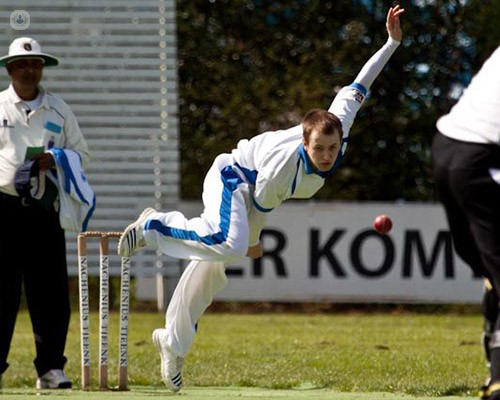How a patient’s history can give vital clues when diagnosing a shoulder injury
Autore:The shoulder is a complex joint, which is sometimes difficult to assess. However, some key points in a patient’s history can really help with the diagnosis. Leading consultant orthopaedic surgeon, Mr Ziali Sivardeen gives a few useful pointers that a specialist will consider when investigating a shoulder injury.

Age
Certain conditions are more common in different age groups. For example, younger patients will more commonly experience instability problems including a labral tear or a biceps lesion, whilst older patients more commonly have a rotator cuff tear or arthritis.
Job or sports and hobbies
A desk job, or job at a computer desk can often be associated with poor posture. This poor posture may lead to a muscle imbalance, and various problems around the shoulder including subacromial impingement. This group of patients often do very well with physiotherapy working on the posture, cervical spine, shoulder, and scapula.
Sports people are more prone to certain types of injury due to the repetitive nature of training and the sport itself. For example, tennis players are more prone to SLAP lesions, and cyclists often have AC joint problems.
Where is the pain and where does it go?
Pain that goes below the elbow, is often from the neck and not the shoulder.
Night pain
Pain during the night normally indicates the severity of the problem, but it could also be linked to something more sinister going on, like cardiac ischaemia, metastatic disease, lung tumour, pneumonia or peptic ulcer disease.
This risk of other conditions causing pain during the night is why it is really important to get an injury checked by a specialist.
Diabetes
Diabetic patients, or patients with Dupuytren’s contracture are more prone to having a frozen shoulder/adhesive capsulitis. This is helpful, because if you diagnose this, it guides you on a pathway away from immediate surgery in many cases.
Severe traumatic injury
Has the patient had a traumatic injury to the Shoulder in the past? Have they had a dislocation or a big injury that may have caused problems for a couple of weeks, many years ago?
This is a useful question, because what the patient presents with now may be linked to the old injury, and it is this old injury that needs to be addressed not the new problem.
If you’ve recently experienced an injury to your shoulder, or you’re experiencing pain that won’t go away, book a consultation with Mr Sivardeen today.


